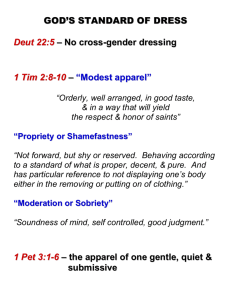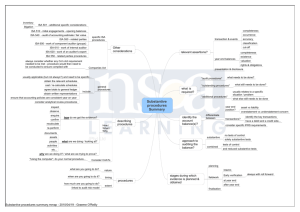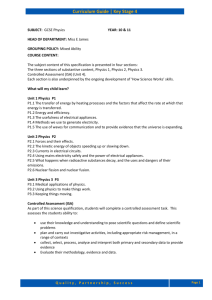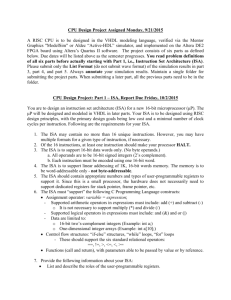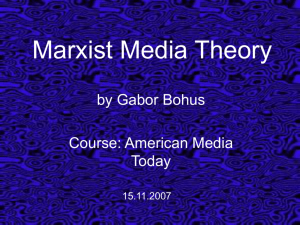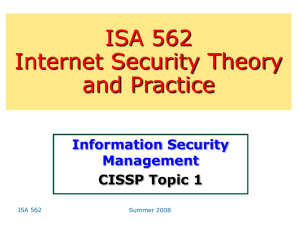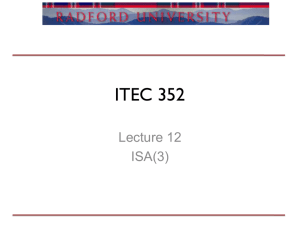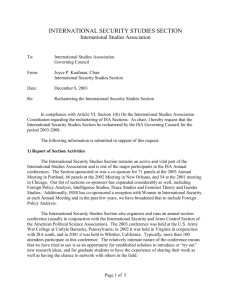The Waste Land - Valdosta State University
advertisement
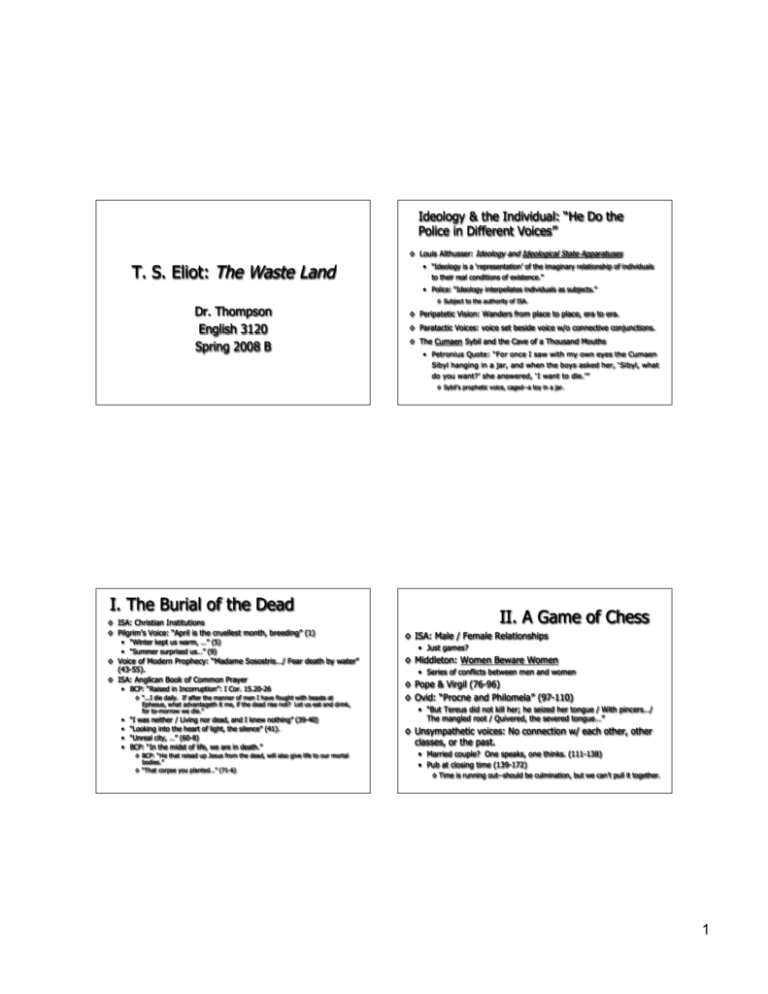
Ideology & the Individual: “He Do the Police in Different Voices” ◊ Louis Althusser: Ideology and Ideological State Apparatuses T. S. Eliot: The Waste Land • “Ideology is a ‘representation’ of the imaginary relationship of individuals to their real conditions of existence.” • Police: “Ideology interpellates individuals as subjects.” Dr. Thompson English 3120 Spring 2008 B ◊ Subject to the authority of ISA. ◊ Peripatetic Vision: Wanders from place to place, era to era. ◊ Paratactic Voices: voice set beside voice w/o connective conjunctions. ◊ The Cumaen Sybil and the Cave of a Thousand Mouths • Petronius Quote: “For once I saw with my own eyes the Cumaen Sibyl hanging in a jar, and when the boys asked her, ‘Sibyl, what do you want?’ she answered, ‘I want to die.’” ◊ Sybil’s prophetic voice, caged--a toy in a jar. I. The Burial of the Dead ◊ ISA: Christian Institutions ◊ Pilgrim’s Voice: “April is the cruellest month, breeding” (1) • “Winter kept us warm, …” (5) • “Summer surprised us…” (9) ◊ Voice of Modern Prophecy: “Madame Sosostris…/ Fear death by water” (43-55). ◊ ISA: Anglican Book of Common Prayer • BCP: “Raised in Incorruption”: I Cor. 15.20-26 ◊ “...I die daily. If after the manner of men I have fought with beasts at Ephesus, what advantageth it me, if the dead rise not? Let us eat and drink, for to-morrow we die.” • • • • “I was neither / Living nor dead, and I knew nothing” (39-40) “Looking into the heart of light, the silence” (41). “Unreal city, …” (60-8) BCP: “In the midst of life, we are in death.” ◊ BCP: “He that raised up Jesus from the dead, will also give life to our mortal bodies.” ◊ “That corpse you planted…” (71-6) II. A Game of Chess ◊ ISA: Male / Female Relationships • Just games? ◊ Middleton: Women Beware Women • Series of conflicts between men and women ◊ Pope & Virgil (76-96) ◊ Ovid: “Procne and Philomela” (97-110) • “But Tereus did not kill her; he seized her tongue / With pincers…/ The mangled root / Quivered, the severed tongue…” ◊ Unsympathetic voices: No connection w/ each other, other classes, or the past. • Married couple? One speaks, one thinks. (111-138) • Pub at closing time (139-172) ◊ Time is running out--should be culmination, but we can’t pull it together. 1 III. The Fire Sermon • Poem’s pivotal point, structurally. • Sets past traditions next to barren present (173-184) • Death, the Eternal footman (185-6) • Gautama Buddha’s “Fire Sermon”: all is on fire. • Mr. Eugenides (207-14) • Sex w/o meaning or love (222-256, 292-99) • St. Augustine Confessions: “ Grant me chastity and continence, but not yet” (306-310). • Repeat images: • Rats (death), jug jug jug (rape), sailors, “Unreal City” • Conrad’s Heart of Darkness & rivers of time (266-77) • Pilgrimage becomes quest of the Fisher King (187-192) • Prophetic Voice: IV. Death by Water • ISA: Life as business. (311-13) • Phlebus’ Baptism (314-17) – More peaceful to drown than to burn? • Emily Dickinson’s “I felt a funeral…” – Phlebus forgot us, but we dare not forget him (316-321) • Tiresius, who was both man and woman (182, 215-249) V. What the Thunder Said Psalm 77: 17-20 What happens after death? (322-34) From: Brihadaranyaka Upanishad – In the beginning there was nothing whatsoever in the universe. By Death, indeed, all this was covered… – Then He moved about, worshipping Himself. From Him, thus worshipping, water was produced. – He desired: "Let me sacrifice again with the great sacrifice." He was tired and he practiced austerities. Pilgrimage & Quest – Luke’s two disciples along a road & Shackleton’s journey to the South Pole (360-366) – Chapel Perilous & Lancelot (386-390) To survive the journey hangs upon an “if” (335-46) Voice of the thunder (40034) Ideologies: No more than “fragments shored against my ruins.” 2
